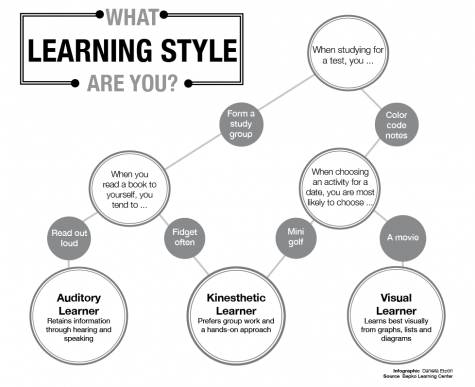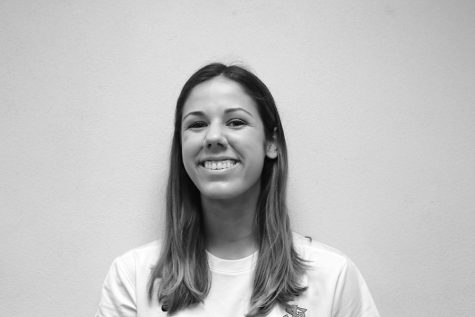Learning incorporates multiple styles
Teaching requires adjustment, adaptation
December 17, 2015
 High Achievement Program adviser Peter Redmond remembers adjusting his teaching style by providing alternative options for students who learn differently.
High Achievement Program adviser Peter Redmond remembers adjusting his teaching style by providing alternative options for students who learn differently.
Redmond said when he taught in a classroom, he preferred to use a Socratic method of discussion, in which a question-and-answer forum directed conversation.
“I prefer having a discussion more so than a lecture,” Redmond said. “When you go to college, very often classes are so big that professors lecture and you have to take notes and then you’re responsible for the content. I like the students to be more involved.”
According to the Indiana University Bepko Learning Center, most people fall into the categories of visual, auditory or kinesthetic learning styles.
Tina Kruse, an education psychologist at Macalester College, said research in cognitive psychology shows complications involving learning styles.
“What we know from the research in cognitive psychology is that the way learning styles play out is more complicated than most of us in popular culture and education really realize,” Kruse said.
Although people have different learning strengths, Kruse said information stores in other ways.
“It doesn’t always mean that teachers should teach directly to that mode, because almost all information is stored as meaning memory, not as visual, auditory or kinesthetic,” Kruse said. “People do have strengths in their cognitive modalities, but it doesn’t always mean that they learn better.”
Junior Suweyda Abdi said she learns kinesthetically. She said lectures prevent her from remembering information.
“When I write things down, I memorize them better,” Suweyda said. “When teachers lecture, I don’t remember it as much as when we answer questions from the board or we do notes.”
Junior Ben Chappell said he finds certain methods of learning ineffective and overwhelming.
“When I’m just reading from a textbook and I have to answer a bunch of stuff, I cannot do that– — just copying down definitions. It’s too much,” Chappell said.
Redmond said educators must adjust their teaching style if it does not work with a particular class.
“The teachers have to be aware of the style of the learners, and hopefully the teachers will be able to adjust,” Redmond said. “Even within a particular class, some students are more visual; some students are more audio learners. You have to adjust to those specific students.”
Chappell said a good teacher should adapt to students’ needs and use communication to ensure everyone learns the material.
“I believe (teachers) should attempt to assist as many students as they can, with their main teaching style, but definitely maybe take a step out of their comfort zone to assist students who need something else,” Chappell said.
Redmond said he recommends teachers continue adjusting their teaching to support students.
“The best teacher in the world is experienced, so teachers need to be in tune with their kids,” Redmond said. “If necessary (they should) go back to their curriculum, go back to their textbooks, and figure out a way that kids can learn and not struggle as much.”
Chappell said when it comes to lecturing, teachers should demonstrate more receptibility to questions.
“My grades have definitely taken a hit from some teachers that like to lecture but not really explain the material,” Chappell said.
Redmond said if students feel something isn’t working for them in the classroom, they should talk to their teacher.
“It’s up to the student, and also the teacher eventually, but it’s up to the student,” Redmond said. “They need to tell their teacher.”
Freshman Abby Feldman said she focuses more with videos because she learns visually.
“I can’t read as well so it’s harder to read things. If it’s a video, I can see a lot better, and it’s just a lot easier, I think. It helps me focus more,” Feldman said. “It’s different for everybody though.”
Redmond said students can figure out what learning style they have by what makes them most comfortable and what they do well. He said students benefit from knowing their learning style because they will have better grades and learn more.
“Our goal is to go to college or should be to go to college, but that doesn’t have to be everybody’s ultimate goal,” Redmond said. “The goal of school is to learn, and then what you do with that learning is up to you.”



